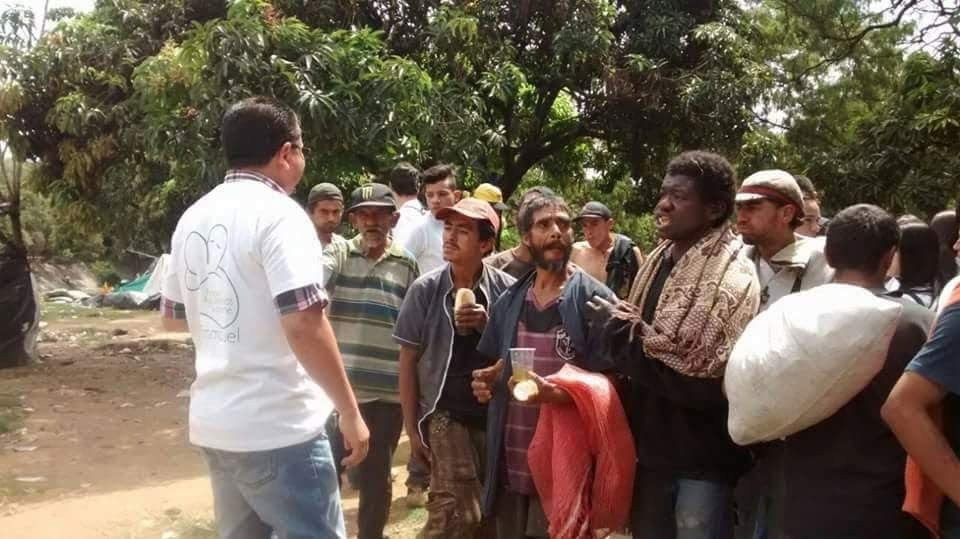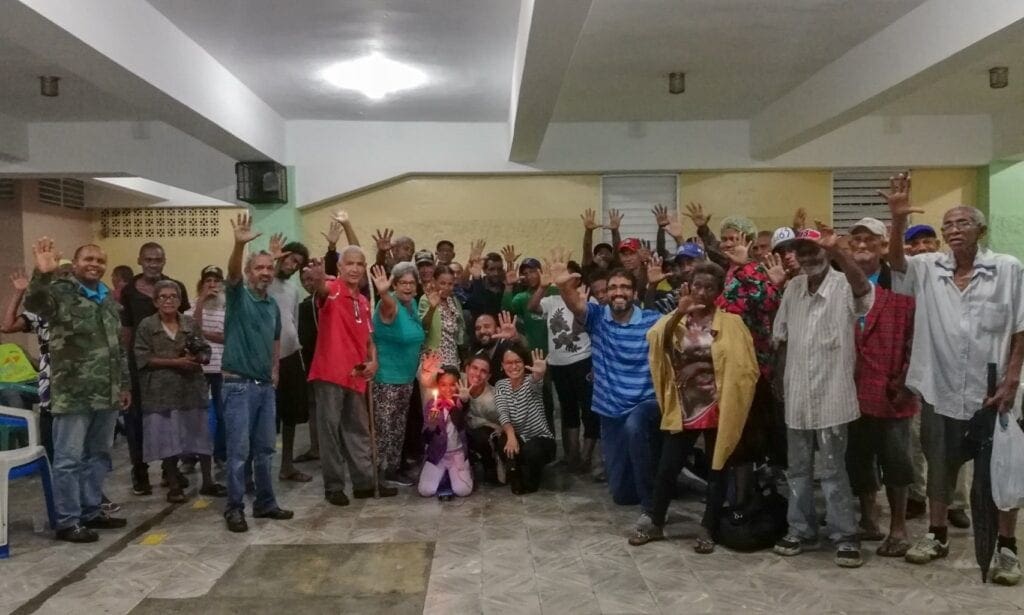In 2015, Pope Francis’ published Laudato Si’ an encyclical on climate change and inequality. The following is a reflection on his words and a consideration of how Laudato Si’ both informs and affirms the work of the Famvin Homeless Alliance. The reflection will be published in three parts.
In turn, we ask you to reflect on what unique contributions the Vincentian Family could bring to the movement for environmental and social justice.

As Vincentians, we call for deeds not words. What we do matters more than what we say. St Vincent de Paul’s life was characterised by action and he himself said that “the practice of charity, such as assisting the suffering members of our Lord, is to be preferred to all other exercises”. In Laudato Si’, Pope Francis expresses frustration with the current stagnancy from political and religious institutions, corporations, organisations, and individuals, when it comes to tackling climate change. Just as we do as Vincentians, Francis calls for action.
Doomsday predictions can no longer be met with irony or disdain. We may well be leaving to coming generations debris, desolation and filth … The effects of the present imbalance can only be reduced by our decisive action, here and now. We need to reflect on our accountability before those who will have to endure the dire consequences (sec. 161).

Another fundamental overlap between Vincentian values and the message of Laudato Si’ is the centring of the poor. Vincent told us that “the poor are our masters” and emphasised how much we have to learn from the poor. Similarly, Pope Francis recognises that if we are to have any hope of achieving the change that he wishes, everyone must be included in the dialogue, and that includes the poor. Not least because they will be far the worst affected by the climate crisis. In particular, Francis platforms the voices of indigenous groups and demonstrates what he learned from working with them before his election as pope.
[Indigenous groups] are not merely one minority among others, but should be the principal dialogue partners … For them, land is not a commodity but rather a gift from God and from their ancestors who rest there, a sacred space … When they remain on their land, they themselves care for it best. Nevertheless, in various parts of the world, pressure is being put on them to abandon their homelands to make room for agricultural or mining projects which are undertaken without regard for the degradation of nature and culture (sec. 146).
Local individuals and groups can make a real difference. They are able to instil a greater sense of responsibility, a strong sense of community, a readiness to protect others, a spirit of creativity and a deep love for the land. They are also concerned about what they will eventually leave to their children and grandchildren. These values are deeply rooted in indigenous peoples (sec. 179).

A specific learning from the poor is present in Francis’ declaration that the earth is a mother who deserves care. Francis’ anthropomorphism of the earth continues as he states that the earth and the poor are intrinsically connected and that the earth is, in fact, “the most abandoned and maltreated of our poor” (sec. 2).
The earth is also a poor one who needs to be cared for along with those vulnerable humans who are the first to suffer the consequences of our exploitation of the earth (sec. 190).
If the earth and the poor are one and the same, then ecological issues cannot be separated from social ones. Environmental sustainability and social sustainability must be seen as equally important, since the two are mutually inclusive and one cannot exist without the other. At present, we do not have either. In the words of Pope Francis:
Every ecological approach needs to incorporate a social perspective which takes into account the fundamental rights of the poor and underprivileged (sec. 93).
We are faced not with two separate crises, one environmental and the other social, but rather with one complex crisis which is both social and environmental. Strategies for a solution demand an integrated approach to combating poverty, restoring dignity to the excluded, and at the same time protecting nature (sec. 139).
Accordingly, the FHA will continue to stay true to its Vincentian values and serve the poorest of the poor, whilst also placing front and centre systemic change initiatives that combat the impact of climate change and environmental destruction.







0 Comments